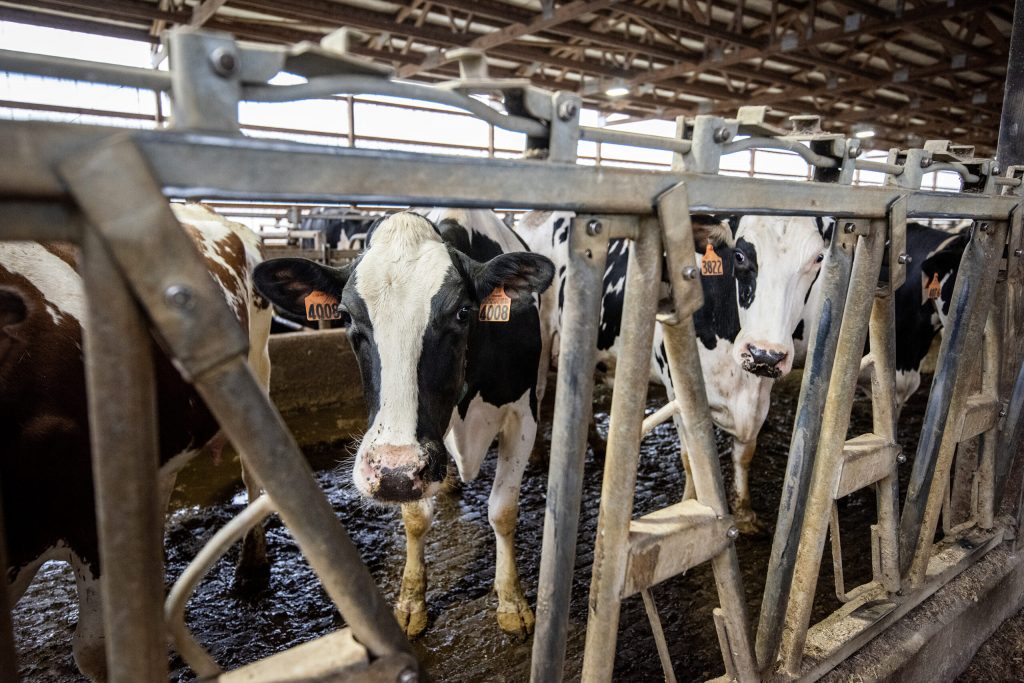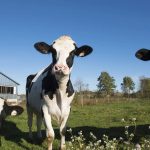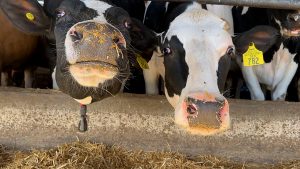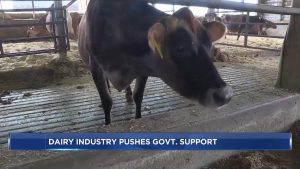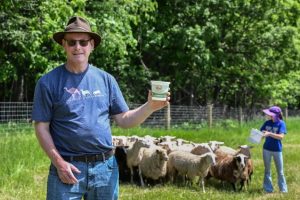
Central Wisconsin farmers said a trade war with China and potential immigration crackdowns make it harder for them to stay afloat.
A group of farmers came together Thursday for a discussion at Miltrim Farms in Marathon County. The discussion, part of a series of listening sessions by the Council on Foreign Relations, a Washington, D.C.-based think tank, included a range of agriculture sectors: dairy farmers, ginseng farmers, a maple syrup producer, the owner of an apple orchard and an organic produce farmer.
It centered on how U.S. foreign policy and policies on immigration are felt by producers and small businesses in the region.
On immigration, Republican presidential candidate Donald Trump has promised mass deportations of those living in the U.S. without legal status.
Those deportations, if carried out, would likely hit Wisconsin dairy farms hard. Dairy producers rely on immigrant labor, often from Mexico and South America, to operate. While many workers come here with legal status through temporary work visas, that is not the case for all of the workforce.
“It seems foolish to just pretend that foreign-born workers aren’t here and that we don’t need them,” said Hans Breitenmoser, whose dairy farm outside of Merrill has about 460 cows. “We need a means by which their presence here can be legal and sustainable, and also provide them with the dignity that they deserve.”
Recent public opinion polling has shown a turn in favor of the crackdown advocated by Trump. An April 25 survey by Axios and The Harris Poll found a majority of Americans said they would support mass deportations.
In Wisconsin, the most recent Marquette Law School Poll found 30 percent of Wisconsinites said undocumented immigrants currently working in the U.S. should be deported — a figure that has nearly doubled in the last two years.
Wisconsin farmers are also affected by trade policies, including existing and proposed tariffs in the ongoing trade war with China. Wisconsin exported $3.87 billion in agricultural and food products in 2023, according to state data. When the U.S. imposes tariffs on imported goods, often the affected country retaliates by placing new fees on U.S.-produced products.
This effect is seen clearly in the U.S. ginseng industry.
More than 90 percent of U.S. production of ginseng comes from Wisconsin’s Marathon County, and the great majority of that product is exported to China. The multimillion-dollar industry has been decimated by the trade war with China. The escalated tariffs started under Trump’s administration, and has continued under Democratic President Joe Biden.
The number of ginseng producers in central Wisconsin has fallen, and current producers have struggled with declining revenues.
“We have a 120-year tradition in Marathon County for raising ginseng, which is mostly export-driven. So now we are really between a rock and a hard place,” said Ming Tao Jiang, president of Marathon Ginseng International.
Farming is also an equipment-intensive business, which means farmers are affected by the price of steel or other building materials that may fall under new tariffs. Biden has called for steep new tariffs on Chinese steel and aluminum, which could help U.S. manufacturers but would likely drive up costs.
You can now read the most important #news on #eDairyNews #Whatsapp channels!!!
🇺🇸 eDairy News INGLÊS: https://whatsapp.com/channel/0029VaKsjzGDTkJyIN6hcP1K
